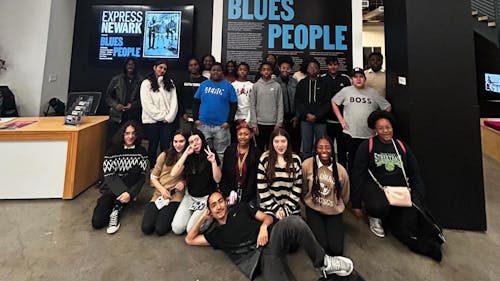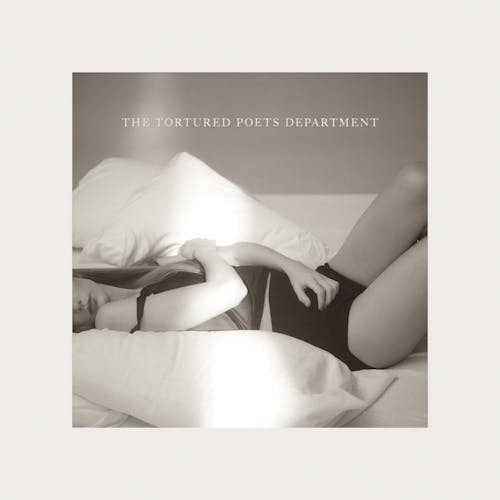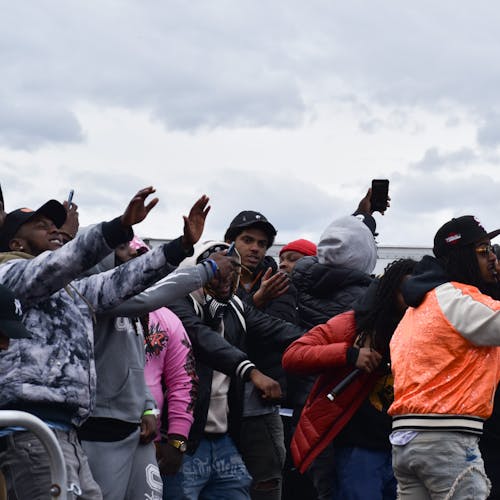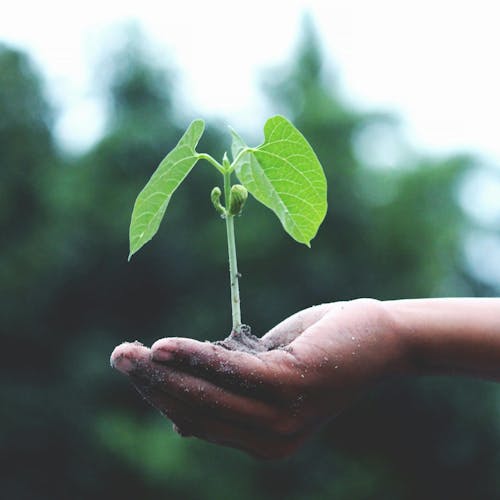Express Newark celebrates Amiri Baraka, Black art with 'Blues People' exhibit

Poet and author LeRoi Jones used the term "blues people" as a way to pay homage to the descendants of enslaved Africans who invented the American music genre known today as the blues. The music was born from their struggles and experiences, wrote Jones, now known as Amiri Baraka.
Now, 60 years later, Express Newark asked various Black artists to capture what it means to be blues people in the 21st century. The result is a new exhibit for the center, which opened on February 20 with a reception attended by a crowd of nearly 500 visitors, including students from nearby schools.
At the opening, another poet, Jasmine Mans, performed her poem "Blues People After Amiri Baraka 2024." Its stanzas decorate the white halls of the exhibit's primary walkway. Her work, like that of the other artists, was inspired by the 1963 book, "Blues People: Negro Music in White America," written by Baraka, the father of Newark Mayor Ras Baraka.
In the nearby box gallery sits Adama Delphine Fawundu's installation, "Who We Be." Panoramic wallpaper created from a collage of photos of a Ghanaian beach party line the room, and in the center sit headphones and a TV playing a video with hip-hop music.
Fawundu studied at Stony Brook University, where Baraka was a professor in the Department of Africana Studies — there, Fawundu was introduced to the poet's written works. She produced her current installation during her voyage through Freetown, Sierra Leone.
"I like to push the boundaries of photography, even play with the identity of photography as I think about how complex our identities are as people of African descent," she said. "And I feel like that's what 'Blues People' does. It talks about how complex we are, the intelligence that lives in our bodies and how this information transforms and moves through generation to generation."
Another installation, Adebunmi Gbadebo's video and sculpture of bones, was based on the artist's ancestry.
"The video is me returning to the indigo and rice plantation where my ancestors were enslaved to remake a piece that I originally made here in Newark ... using cotton, Black hair," she said. "It was a way to literally put us back into this history, into this land, into the Earth."
Alliyah Allen, an associate curator and senior program coordinator at Express Newark and a graduate student at Columbia University in the Department of Art History and Archaeology, said "Blues People" is the first exhibit she has ever curated.
"'Blues People' is really about ... the spirit of Amiri Baraka, but it's also about home, it's about family, it's about protest," she said. "So, to be able to curate a show that centers around those ideas back at home and have my family here to see it means everything. I think art should always inspire change ... So, to be able to do that here is truly a dream."
Installations by Derrick Adams, Cesar Melgar and Accra Shepp, whose father, jazz musician Archie Shepp, was a good friend of Baraka's, were also included in the exhibit.
"Blues People" will be open until July 19.



